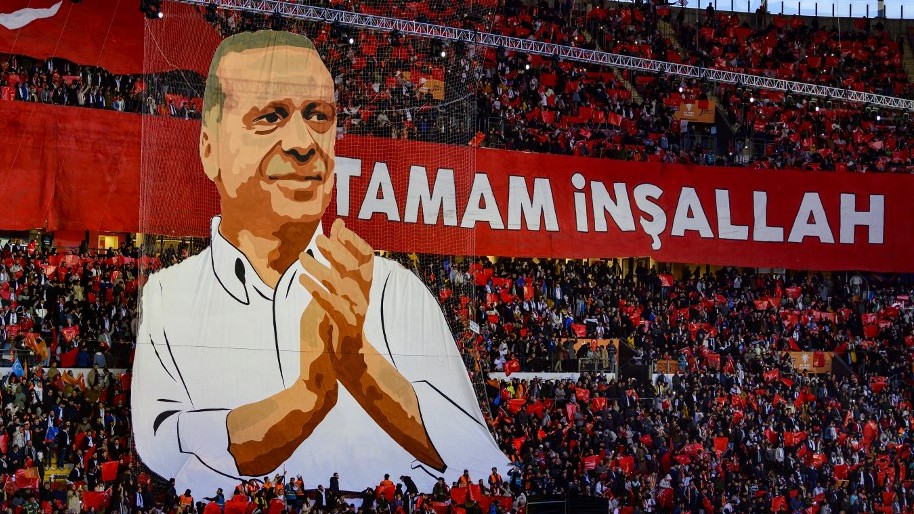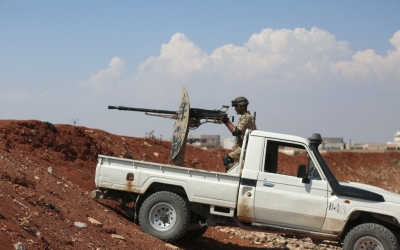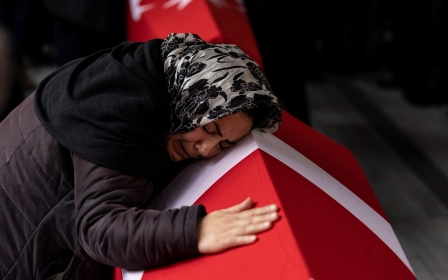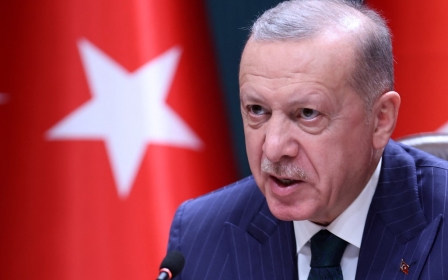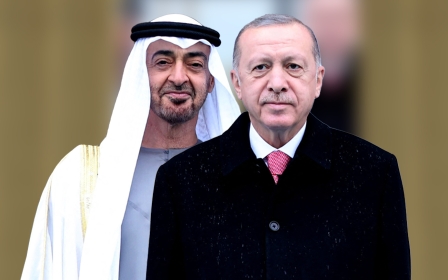Istanbul bombing will not derail Erdogan's regional outreach efforts
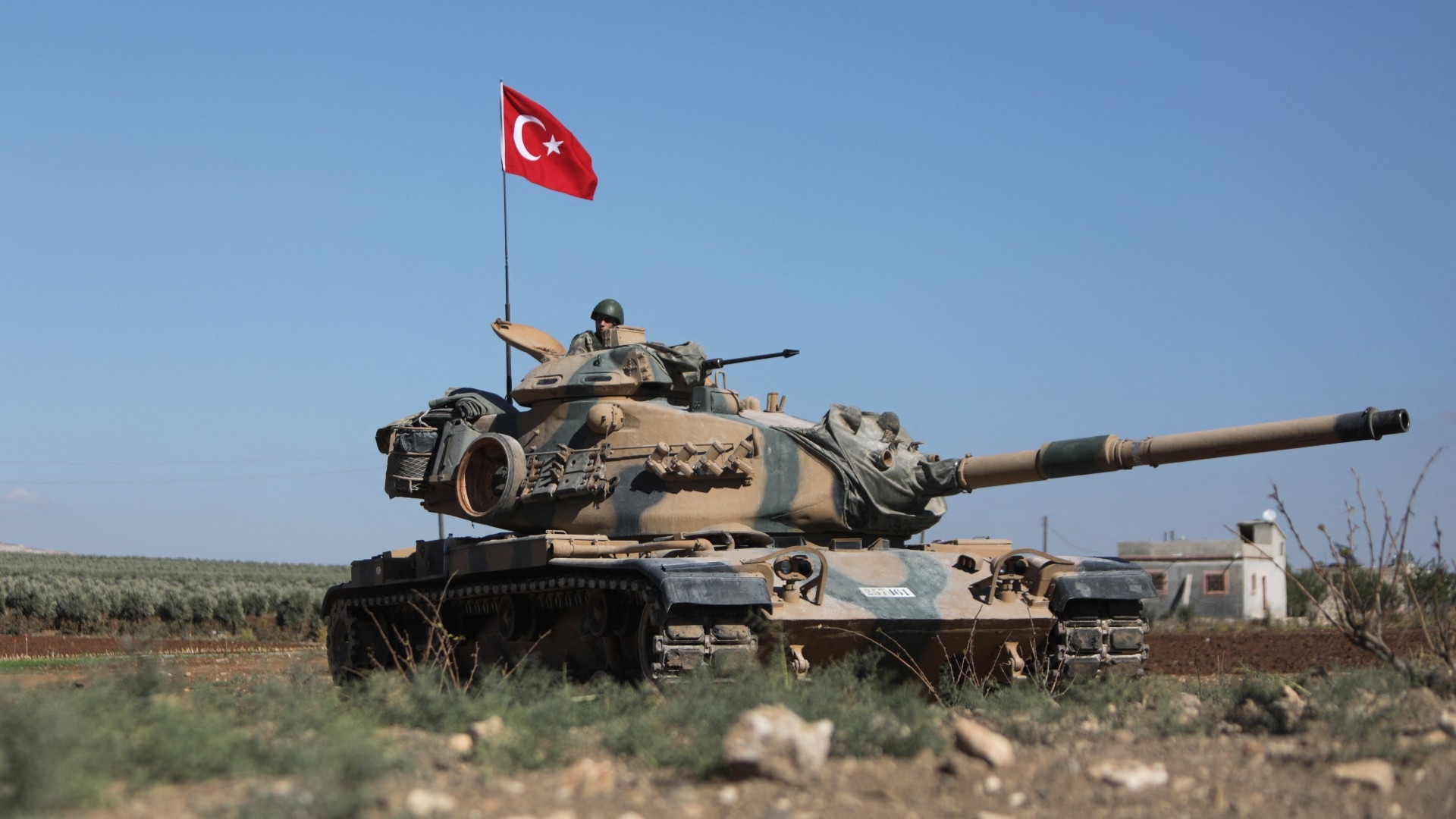
It was an ordinary Sunday for Turkish people and tourists to spend time with friends and family on Istanbul’s iconic Istiklal Avenue. Then a bomb hit, killing six people and wounding dozens more.
The tragedy two weeks ago brought back memories of the terror attacks in Turkish cities in 2015-16, when hundreds of people were killed by Kurdish armed groups or the Islamic State. While the frequency of such attacks has decreased since 2017, recent events have sparked fears that the country may again be headed for chaos ahead of next year’s presidential election.
For Ankara, the main threat is not posed by the policies of regional governments, but rather by non-state actors such as the PKK and the YPG
After the Istiklal explosion, its potential effects on Turkey’s politics came to the forefront of public discussions. While Turkey has been taking steps to strengthen the country’s security and to reconcile with regional players, questions remain over how the blast may affect this process.
Turkey’s AK Party has recently made overtures to the opposition HDP, including the release from prison last month of Kurdish politician Aysel Tugluk, in addition to allowing jailed former HDP leader Selahattin Demirtas to visit to his father in Diyarbakir. Demirtas told a prominent journalist: “Everybody knows that the AK Party cannot win elections without Kurdish votes. Therefore, these attempts are very much normal. What is odd is the attitude of those who do not dare to make any moves.”
Combatting terror
New MEE newsletter: Jerusalem Dispatch
Sign up to get the latest insights and analysis on Israel-Palestine, alongside Turkey Unpacked and other MEE newsletters
In contrast to the reconciliation approach, some have pointed to the success that the AK Party has found in recent years precisely because of the threat of terrorism, by positioning itself as the party best equipped to combat that threat. There are even conspiracy theories over the party’s role in facilitating such attacks in 2015, though such notions have been broadly debunked in the context of rising global terrorism at that time.
In recent months, the AK Party’s election strategy has focused on the creation of positive news - a strategy that appears to be resonating with voters, according to opinion polls.
At the same time, amid a massive economic crisis in Turkey, security is one of the strongest tools that the government can wield. Some observers have suggested that the Istanbul bombing could derail President Recep Tayyip Erdogan’s reconciliation efforts, shifting his focus more exclusively to security-oriented policies. The last thing Erdogan wants is a return to the rise of terrorism in Turkish cities.
When the Arab Spring erupted in 2010-11, Turkey became a role model for the Middle East, fostering close relations with the new leaderships emerging in Egypt and Tunisia, as well as with the revolutionary democratic movements in Syria and across the region. But as counter-revolutionary forces in states such as Saudi Arabia and the UAE reasserted control, and as Russia and Iran worked to restore the Assad regime in Syria, Turkey’s approach was thrown off track.
Presidential spokesperson Ibrahim Kalin once described this approach as “valuable solitude”. But rather than sustaining it, Turkey instead launched reconciliation efforts with countries such as Saudi Arabia, the UAE and Israel.
Restoring ties
That push has expanded to include Egypt, with Erdogan meeting Egyptian President Abdel Fattah al-Sisi for the first time at the World Cup in Qatar this month, sparking speculation over whether a similar reconciliation could occur with Syrian President Bashar al-Assad.
In the context of its operations along the Syrian and Iraqi borders, Turkey has not needed to seek permission to target the Kurdistan Workers’ Party (PKK) and affiliated groups, relying on its own network of military bases in both countries. Turkey views the PKK and its Syrian branch, the YPG, as terrorist groups and has accused them of being behind the Istiklal attack - allegations they have denied. Photos have been released by Turkish media alleging a relationship between the attacker and the YPG.
While Ankara has made clear that it wants to restore ties with the Syrian regime, its priority is to remove the threat of the YPG, and to secure its borders as the election approaches. Turkey has long aimed to settle the war in Syria and to work on projects to repatriate Syrian refugees within safe zones, rather than to escalate tensions.
Ultimately, renewed cross-border anti-terrorism operations are the natural result of the blast in the heart of Turkey. For Ankara, the main threat is not posed by the policies of regional governments, but rather by non-state actors such as the PKK and the YPG, who are the main sources of destabilisation. As such, the Istiklal blast will not prevent Ankara’s reconciliation efforts with its neighbours - and it may even pave the way for new talks and new alliances to target this threat.
The views expressed in this article belong to the author and do not necessarily reflect the editorial policy of Middle East Eye.
Middle East Eye delivers independent and unrivalled coverage and analysis of the Middle East, North Africa and beyond. To learn more about republishing this content and the associated fees, please fill out this form. More about MEE can be found here.



